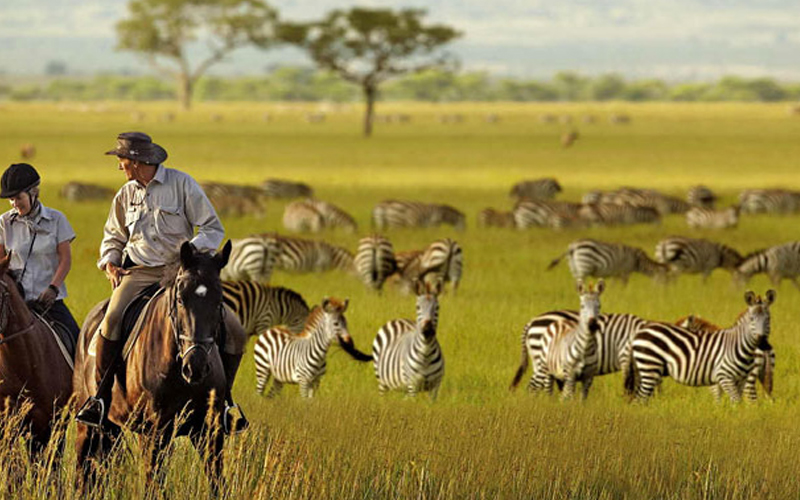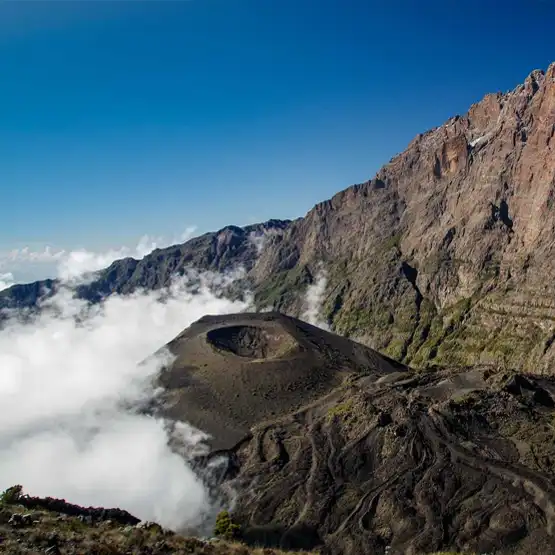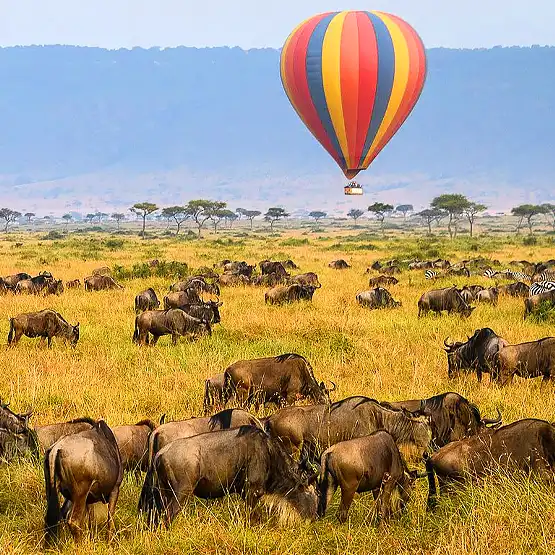Tanzania Eco-Friendly Tourism 2024
As environmental awareness grows worldwide, Tanzania has emerged as a premier destination for eco-friendly tourism in 2024. With its breathtaking landscapes, diverse wildlife, and commitment to conservation, Tanzania offers travelers an unparalleled opportunity to explore nature responsibly. From vast savannahs and majestic mountains to pristine beaches and coral reefs, Tanzania provides eco-conscious travelers with experiences that prioritize sustainability and conservation, making it a top choice for eco-tourism this year.
1. Exceptional Biodiversity and Protected Areas
Tanzania is home to some of the world’s most biodiverse ecosystems, including iconic parks such as Serengeti, Ngorongoro Crater, and Kilimanjaro National Park. These protected areas harbor a vast range of species, from the “Big Five” to unique flora and endemic species. Tanzania’s national parks and conservation areas adhere to strict guidelines to protect their biodiversity, ensuring that wildlife is preserved while allowing visitors to experience the natural wonders in a low-impact way.
- Commitment to Conservation
The Tanzanian government has implemented numerous conservation programs to preserve its unique habitats. Initiatives like anti-poaching measures, reforestation projects, and community conservation programs are actively protecting endangered species and their habitats. By visiting Tanzania, eco-conscious travelers support these conservation efforts, contributing to the protection of these irreplaceable ecosystems.
2. Eco-Friendly Lodges and Camps
In recent years, Tanzania has seen a rise in eco-friendly accommodations that align with sustainable travel values. From luxurious eco-lodges to eco-conscious tented camps, travelers can choose from a variety of stays that minimize environmental impact while providing comfort and authenticity. These lodges and camps utilize solar energy, practice water conservation, source materials sustainably, and often employ local staff, supporting nearby communities.
- Eco-Lodges in Serengeti and Beyond
Many eco-lodges in Tanzania are located within or near the country’s top national parks, including the Serengeti, Tarangire, and Ruaha. These lodges offer immersive experiences, allowing guests to stay close to nature without harming the environment. With activities such as wildlife walks, night drives, and eco-tours, these accommodations provide a balance of luxury and responsible tourism that enhances the eco-friendly travel experience.
3. Community-Based Tourism Initiatives
Community involvement is central to Tanzania’s eco-tourism approach. Community-based tourism initiatives allow visitors to experience Tanzania’s rich culture while supporting local communities economically. Tourists can participate in village tours, traditional dance performances, and handicraft workshops, providing locals with an opportunity to share their culture and generate income. This model of tourism benefits both visitors, who gain authentic experiences, and communities, who see a tangible positive impact from tourism.
- Empowering Local Communities
Many tour operators and lodges collaborate with local communities, hiring guides from nearby villages, sourcing locally made products, and supporting community projects such as schools and healthcare facilities. By engaging with communities, eco-tourism in Tanzania promotes social and economic sustainability, creating a tourism model that benefits both people and the environment.
4. Conservation-Focused Safari Experiences
Tanzania’s safari industry is dedicated to preserving its natural environment while providing unparalleled wildlife viewing. Many tour operators offer conservation-focused safari experiences, where guests can learn about Tanzania’s efforts to protect wildlife. These tours often include eco-friendly practices, such as avoiding plastic waste, minimizing vehicle impact, and educating visitors about wildlife conservation. Some safari operators even offer “carbon-neutral” packages that offset the environmental impact of travel.
- Eco-Safaris and Ethical Wildlife Viewing
Eco-safaris allow travelers to experience Tanzania’s wildlife in a responsible way. Ethical safari practices include respecting animal habitats, following Leave No Trace principles, and avoiding crowded areas to minimize stress on animals. Many operators also support wildlife conservation organizations, giving back to the ecosystem that makes these experiences possible.
5. Eco-Tourism on Zanzibar’s Pristine Beaches
Tanzania’s eco-tourism extends beyond its savannahs to the coastal regions of Zanzibar and its surrounding islands. Known for its crystal-clear waters, coral reefs, and stunning beaches, Zanzibar is a haven for eco-conscious beachgoers. Marine conservation is a priority in Zanzibar, with initiatives to protect coral reefs, mangroves, and marine species such as sea turtles. Visitors can participate in eco-friendly activities like snorkeling, diving, and beach clean-ups to support marine conservation efforts.
- Marine Conservation and Eco-Friendly Water Sports
Marine parks around Zanzibar, including the Mnemba Island Marine Conservation Area, promote sustainable tourism through eco-friendly activities. Diving and snorkeling operators in these areas follow strict guidelines to prevent coral damage, respect marine life, and reduce waste. Many lodges also offer reef-safe sunscreen to protect the coral ecosystem, encouraging visitors to make environmentally responsible choices.
6. Sustainable Hiking and Trekking Opportunities
Tanzania’s diverse landscapes provide fantastic hiking and trekking opportunities, from climbing Mount Kilimanjaro to exploring the Usambara Mountains. These trekking experiences are organized with sustainability in mind, focusing on minimizing waste and preserving trails. Tour operators work closely with guides, porters, and conservationists to ensure that popular routes like Kilimanjaro remain clean and ecologically balanced.
- Leave No Trace Practices on Kilimanjaro
Trekking Mount Kilimanjaro is a once-in-a-lifetime experience for many, and Tanzania’s tour operators emphasize Leave No Trace principles on this iconic mountain. Porters carry out all waste, including human waste, to protect the environment, and campsites follow eco-friendly guidelines. Additionally, many Kilimanjaro operators support local communities, providing fair wages and training to porters, guides, and cooks, contributing to sustainable employment.
7. Educational Eco-Tours and Conservation Workshops
For travelers interested in learning about conservation, Tanzania offers a range of educational eco-tours and workshops. These experiences allow visitors to engage with local experts, conservationists, and researchers, providing insight into Tanzania’s environmental challenges and successes. Conservation workshops, animal tracking tours, and environmental education programs make eco-tourism in Tanzania an enriching experience for those passionate about protecting nature.
- Engaging with Wildlife Researchers
Several eco-tour operators offer experiences that allow guests to interact with wildlife researchers and conservationists in the field. These tours provide a deeper understanding of Tanzania’s ecosystems and conservation strategies, fostering a greater appreciation for the environment. By learning about wildlife behavior, ecosystem dynamics, and conservation techniques, visitors leave Tanzania with a profound respect for its natural heritage.
8. Tanzania’s Strong Environmental Policies and Partnerships
Tanzania has implemented strong environmental policies and collaborates with international organizations to promote sustainable tourism. Protected areas are managed in collaboration with organizations such as the African Wildlife Foundation and the World Wildlife Fund, ensuring that tourism activities do not compromise the health of Tanzania’s ecosystems. These partnerships help fund conservation initiatives, anti-poaching efforts, and community projects, supporting a sustainable tourism industry.
- Eco-Certification and Responsible Tourism Standards
Many eco-friendly lodges and tour operators in Tanzania are eco-certified, adhering to responsible tourism standards that minimize environmental impact. Certifications such as Travelife and Green Tourism indicate that businesses follow sustainable practices, allowing eco-conscious travelers to make informed choices. Tanzania’s commitment to responsible tourism standards makes it a trusted destination for travelers seeking an eco-friendly experience.
Why Choose Tanzania for Eco-Friendly Tourism in 2024
Tanzania’s commitment to conservation, community involvement, and eco-friendly practices makes it one of the best destinations for sustainable travel in 2024. Whether you’re interested in a responsible safari, eco-lodge stay, or conservation workshop, Tanzania offers eco-conscious travelers a variety of experiences that align with their values. By choosing Tanzania, visitors can support a tourism model that values environmental stewardship, cultural heritage, and economic sustainability.
As eco-friendly tourism gains momentum, Tanzania stands out as a leader in sustainable travel for 2024. With its diverse wildlife, commitment to conservation, eco-friendly accommodations, and community-based initiatives, Tanzania provides an enriching and responsible way to explore the natural world. Travelers looking for meaningful, eco-conscious experiences will find in Tanzania an opportunity to connect with nature, support conservation, and immerse themselves in the country’s vibrant culture. For those planning a trip that respects the environment and leaves a positive impact, Tanzania is an ideal choice.
FAQs
- What makes Tanzania a top destination for eco-tourism?
Tanzania’s commitment to conservation, eco-friendly lodges, community involvement, and responsible safari practices make it a top choice for eco-conscious travelers. - Are there eco-friendly accommodations in Tanzania?
Yes, Tanzania offers a variety of eco-friendly lodges and camps that prioritize sustainability through water and energy conservation, the use of local materials, and support for local communities. - How does community-based tourism benefit local people?
Community-based tourism creates jobs, supports local businesses, and allows communities to share their culture with visitors, fostering economic and social sustainability. - Can I participate in conservation activities in Tanzania?
Absolutely! Many eco-tours offer conservation-focused experiences, such as wildlife tracking, beach clean-ups, and workshops with researchers, allowing tourists to engage in meaningful conservation activities. - What are some eco-friendly activities to enjoy in Tanzania?
Eco-friendly activities in Tanzania include ethical safaris, snorkeling in marine parks, trekking Mount Kilimanjaro, visiting spice farms, and participating in community tours that support local artisans and conservation.







